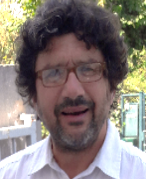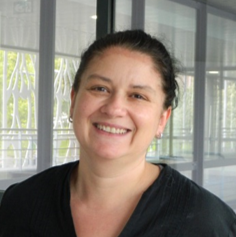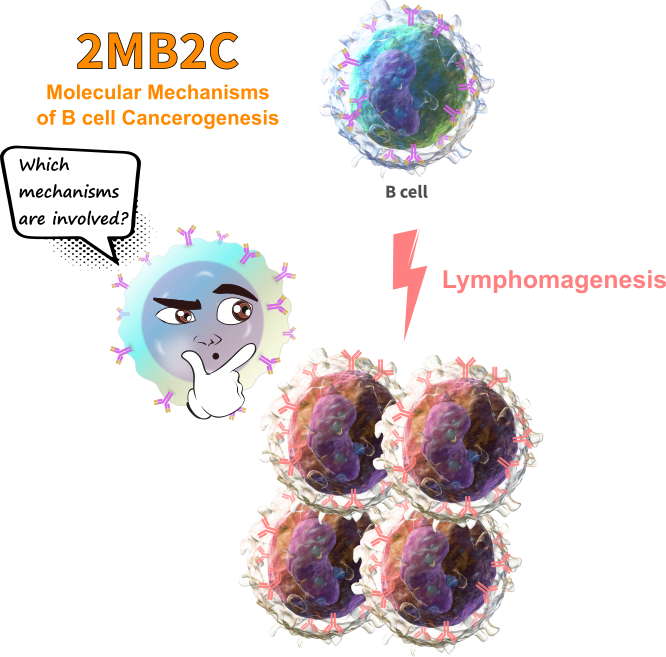Axis Mechanisms of lymphomagenesis – Team 2MB2C
Presentation
The team identifies itself by studying the oncogenic mechanisms and pathophysiological consequences associated with B lymphomagenesis. Different transformation pathways have been identified, such as repertoire bias in indolent B lymphomas, abnormal rearrangements of immunoglobulin genes resulting in deregulation of oncogenes, viruses, activation of oncogenes and/or inactivation of anti-oncogenes regulating transcription. These different pathways thus identify new oncogenic mechanisms associated with B lymphocytes.
In total, our expertise and know-how in the field of flow cytometry, in the study of signaling pathways leading to NF-kappa B and c-Myc activation, in the molecular characterization of immunoglobulin genes in humans and mice, and in the development of cellular and transgenic mouse models have allowed us to acquire a research excellence in the field of B lymphomagenesis.
We have also developed a nationally recognized technological expertise in the characterization of hematological cancers by flow cytometry and/or molecular biology, which has led to numerous applied research projects in the field of myeloid hemopathies, including prognostic and theranostic diagnostic markers as well as the characterization of new gene rearrangements.
Research topics
The objectives are the search for new oncogenic partners of immunoglobulin genes and the description of new oncogenic mechanisms with the prospect of developing new therapeutic targets. This axis is reinforced by a close collaboration between clinicians and researchers specialized in the genetics of immunoglobulin genes.
This axis includes studies of lymphomagenesis not related to immunoglobulin gene rearrangements. Based on well-characterized patient series, we are developing cellular and/or mouse models with the final objective of making preclinical models available. This more fundamental axis is developed by a team of researchers studying several oncogenes found involved in various lymphomas, such as CD40, MYD88, NF-kappa B, or cMyc.
This study is also a strong axis of the team whose mechanisms and signaling pathways are described in various publications (Leukemia, Hematologica, Blood, J Virol. Am J Hematol …).
This line of research aims at understanding the mechanisms of immunosuppression and immunotherapy resistance of NF-κB-related B lymphomas in humans and their modeling in mice. PD1/PD-L1, immune checkpoints, exosomes and regulatory B lymphocytes are the key words of our research. At the interface, we are working with the intensive care unit and the Clinical Investigation Center (CIC Inserm 1435) of the University Hospital of Limoges, on immunosuppression and sepsis (with E. Guérin and R. Jeannet as principal investigators).



